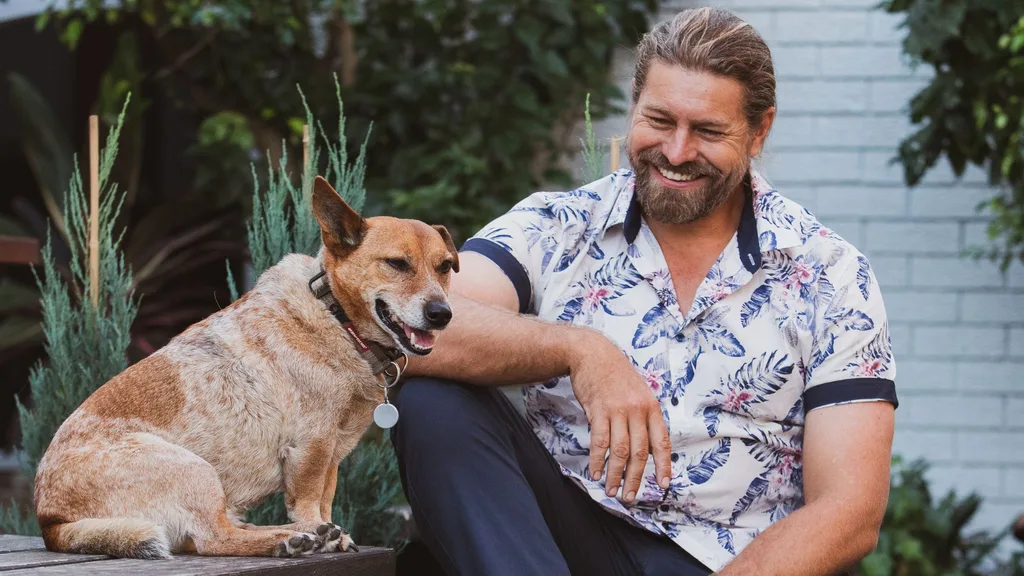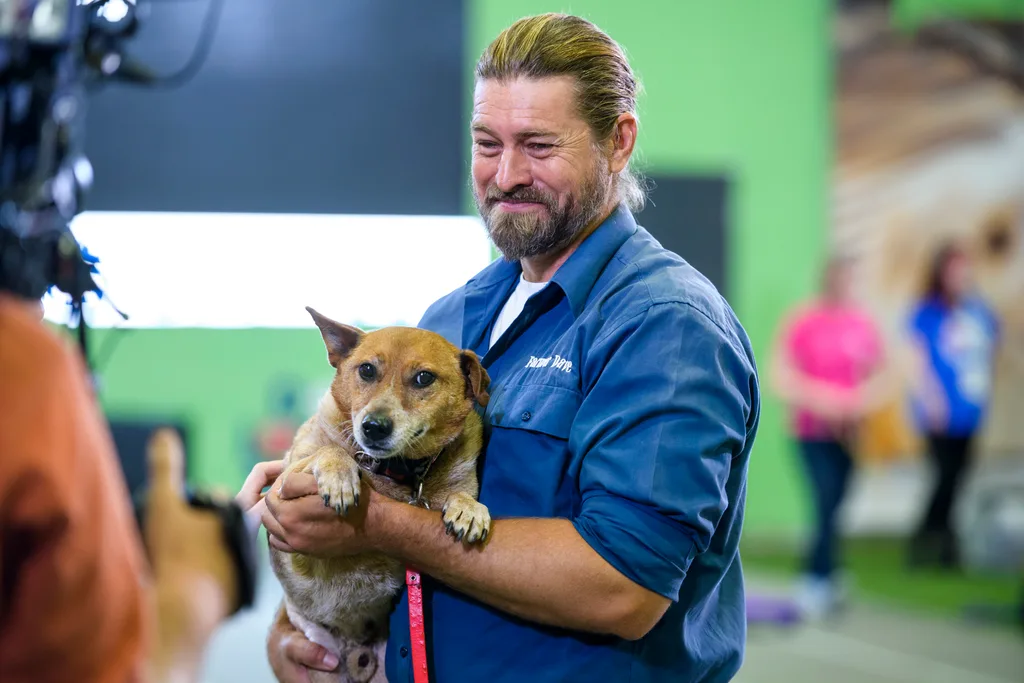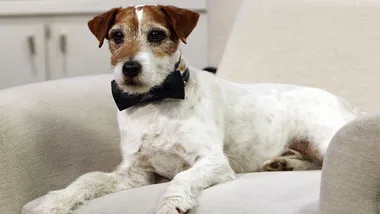As any dog owner will tell you, these loyal and lovable pets bring a lot of joy and companionship into our lives. However, there’s a lot more to consider than a cute pair of puppy eyes if you’re thinking about stepping into the world of pooch parenting.
Animal behaviourist Dave Graham (aka Farmer Dave), reveals a few key things to keep in mind when choosing your new best mate.

RESEARCH THE BREED
While your dream puppy might look like a tiny bundle of fluff now, understanding their breed is the only way to ensure you have the time, space and energy to accommodate future needs.
Dave says you also need to consider the original purpose your chosen dog was bred for. This can provide helpful clues about unexpected behaviour and personality quirks that could appear down the track.
“You must look into the purpose of a breed,” Dave advises. “All breeds of dog are a human construct, and each one has previously done a job for humans in society, be that herding sheep, retrieving ducks, or tracking animals.
“It’s about honouring the breed’s history and understanding what unwanted behaviours will pop out due to the construct of the DNA.”
Rescue dog considerations
With so many pets currently in need of homes, Dave says having a clear picture in your mind before visiting a shelter can prevent you from making impulsive emotional decisions on the day.
“When choosing a rescue dog, make sure you meet the dog and spend time with it,” he explains. “I strongly recommend already knowing before you go to an animal rehoming centre what your family’s needs are.”
If one particular pup tugs at your heartstrings but isn’t really suitable, leaving them for another person to adopt may be the kindest action in the long run.
“It’s not about falling in love with the puppy eyes and feeling like you are the person to rescue that dog,” Dave says. “Although connection is essential, the needs of the dog must come first.”

LOOK LONG-TERM
Along with considering your current lifestyle, ask yourself about any potential changes that could occur down the track. For instance if there’s a chance you’re planning on downsizing, this should be factored in.
“People need to consider a range of factors and think about their lifestyle – where they are living, what activities they do frequently and what their family situation looks like – but most importantly, what their life will look like over the next decade.
When choosing a dog, it is a 10-year plus commitment,” Dave says. “It’s like shopping for any big commitment like a home or a car, it must suit the needs you currently have, but also where you are going to be during the duration of that animal’s life.”

PAWSOME PUPS
FOR MATURE OWNERS
Dave says lap breeds are ideal for people in their senior years. You’ll want one that’s calm, but also ready to bark if they need to alert you about anything. Cavalier King Charles spaniels, shih tzus and malteses are his top picks.
YOUNG ACTIVE FAMILIES
If you have children in your home, active breeds can make the perfect playmate. “Sheep herding breeds, fox terriers, oodle mixes – all can lead to fun sports and activities and relationship building for the whole family,” says Dave.
APARTMENT DWELLERS
A number of dogs can live happily in compact dwellings. Suitable breeds include cavoodles, spitz breeds (for instance German or Japanese) and Cavalier King Charles spaniels.
BUSY PROFESSIONALS
The most important thing is to ensure your dog doesn’t get lonely. Dave suggests independent cat-like breeds, such as shiba inus or basenjis that are less likely to annoy neighbours with unwanted barking when home alone. Or, Dave suggests, consider a cat! “Check out the Cat Lovers Festival to see which breed might suit you.” (See below.)

PURRFECT MATCH
If you’ve always had your heart set on a dog until now, don’t forget that cats are also great companions and can be ideal for people short on space or who don’t have time for daily walks. While felines are often considered to be slightly easier to care for, Dave says you still have to do your homework.
“Investigate the incredible array of cats because just like dogs, there are massive differences between each breed, such as the Norwegian Forest cat and a ragdoll,” he advises.
Cats are also natural escape artists, with a surprising ability to squeeze through impossibly tight nooks and crannies. “It is essential to contain your cat at all times and do not let them roam free,” Dave says.


